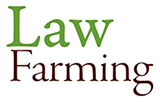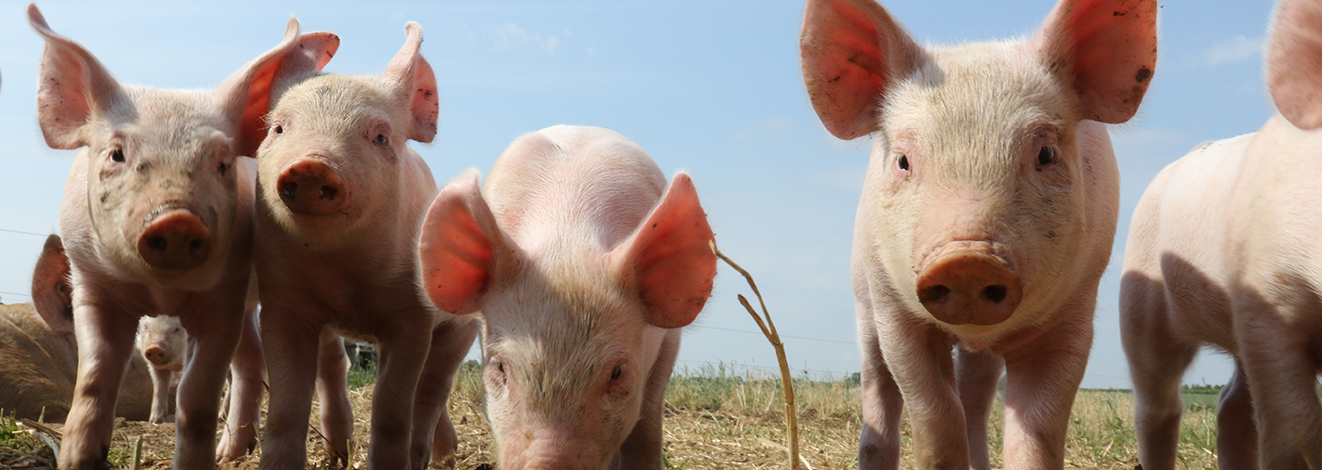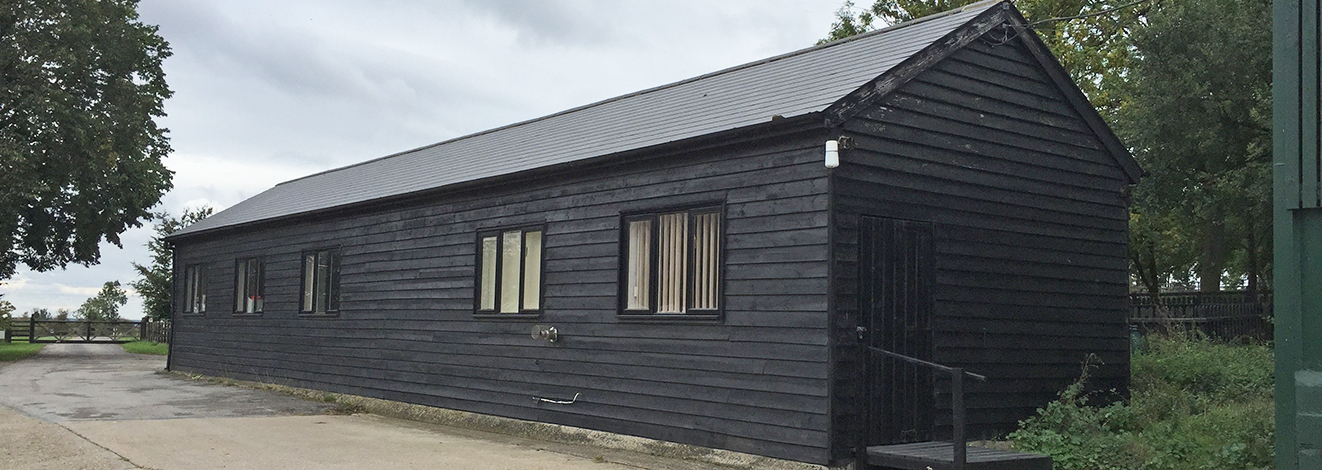About us
Soils
The farms lie at the end of the Chiltern Hills on the Herts, Cambs and Essex borders and are typical of chalk downland with light free-draining soils that suit cereals and other crops. The landscape is a mix of productive arable land with ecologically important chalk grassland habitats. Therfield Heath (SSSI), a large tract of species-rich chalk grassland, lies next to the farm. It is a local nature reserve and a Site of Special Scientific Interest.
Ethos
With a commitment to a sustainable, environmentally responsible agricultural system on the borders of Hertfordshire, Cambridgeshire and Essex, Law Farming produces a variety of arable and fodder crops and manages grass for livestock. The sheep and cattle enterprises help with habitat and soil management. Indeed, many of the crops are grown for seed and are processed or milled locally. The sheep and cattle enterprises help with habitat and soil management.
In the 1990s, the farm actively embraced environmental schemes such as Countryside Stewardship and SFI.
History
On arriving at the Thrift in the early 1980’s after studying at Harper Adams Agricultural College in Shropshire, Robert was handed the cheque book and told to get on with it. The first years were hard but supported by his mentor and boss, and peppered with his own mistakes, he learnt to farm following a time-honoured system.
Arable enterprise
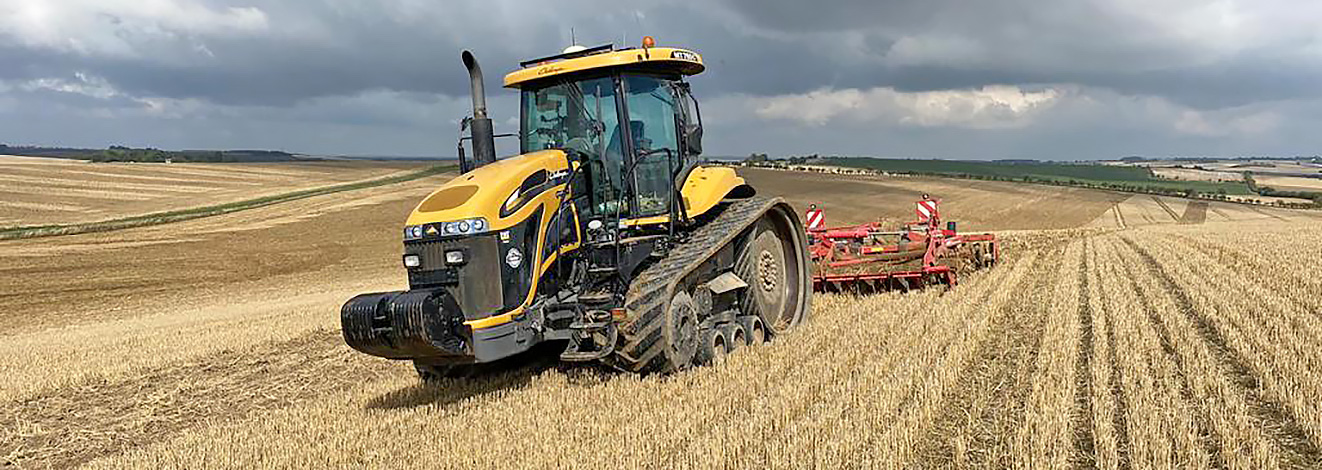
Today, the land is partly owned or rented, with the remainder in contract farming agreements. Our soils are predominantly light, free-draining, chalky loams with some outlying clay knolls and areas of sand running through the lower-lying land.
Most crops are grown to supply local markets. Our milling rye, oats, soft milling wheat and all of the winter barley are sold to Jordans Ryvita.
The crops produced for Jordans Ryvita are grown under their protocols, including the LEAF Marque Standard. The standards stipulate that a minimum of 10% of productive land is sown to provide habitats for mammals, invertebrates, insects and ground-nesting birds, which ties in with key farm sustainability aims.
Peas and brassicas, including Hobson forage rape and Spring Mustard, are grown for seed along with rye and winter wheat. Sugar beet is grown successfully across all the farms and is delivered to the British Sugar factory at Bury St Edmunds in Suffolk.
We have adopted precision farming techniques, including RTK & GPS automatic steering systems and variable rate application of nutrients.
Sheep enterprise
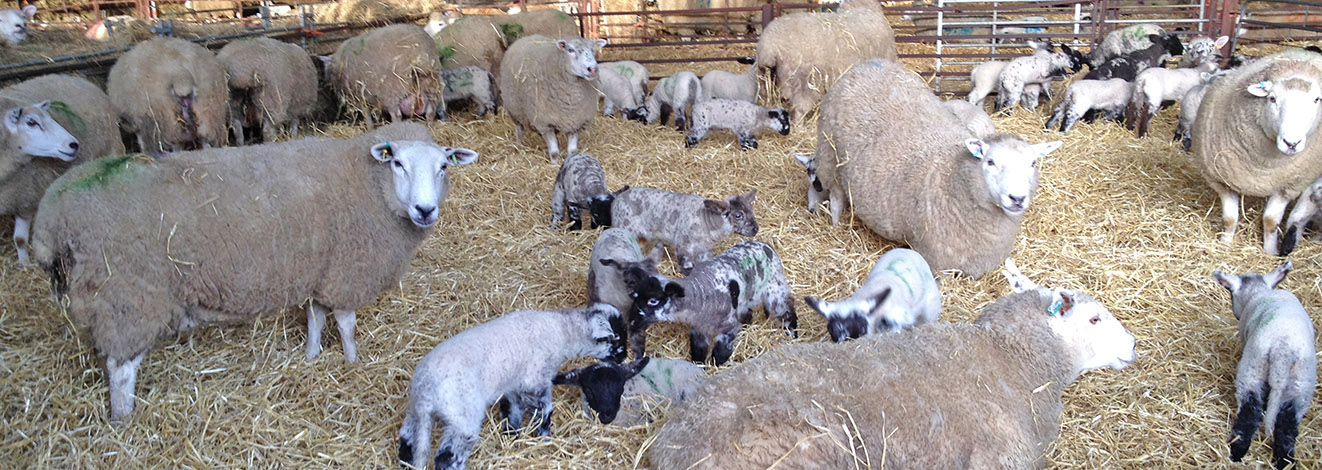
The farm supports around 1,400 ewes, which are lambed through January and February.
If weather and indoor space permit, the ewes and lambs are turned out at four weeks old. The lambs are then creep-fed on grass until they reach the desired weight.
From late May to November, when the ewes are dry, they graze some areas of the adjoining Therfield Heath, which is a Site of Special Scientific Interest. At other times of the year, they graze permanent grass around the farms. Dorset, Texel, Suffolk and Charolais rams are used to produce a mixed balance of finished lamb carcasses.
Flock health
The average rainfall is only 600 mm, so lambs need to be finished. We have few problems with the health of the flocks’ feet. Lambs need to be finished quickly in the summer before the pasture dries out and drought sets in. Routine worming has been replaced by dung sampling in an effort to reduce the risk of resistance to the active ingredients in the products used.
Store lamb production
Each autumn, depending on the availability of feed and the number of our own lambs remaining on the farm, up to 3,000 store lambs are brought onto the farm and finished on catch crops of stubble turnips sown after winter cereals and before spring cereals and sugar beet. The majority of lambs are sold between February and April.
Marketing
We supply a local butcher’s shop with lamb throughout the year. The remainder goes to abattoirs in East Anglia and the South West or to live markets.
Cattle enterprise
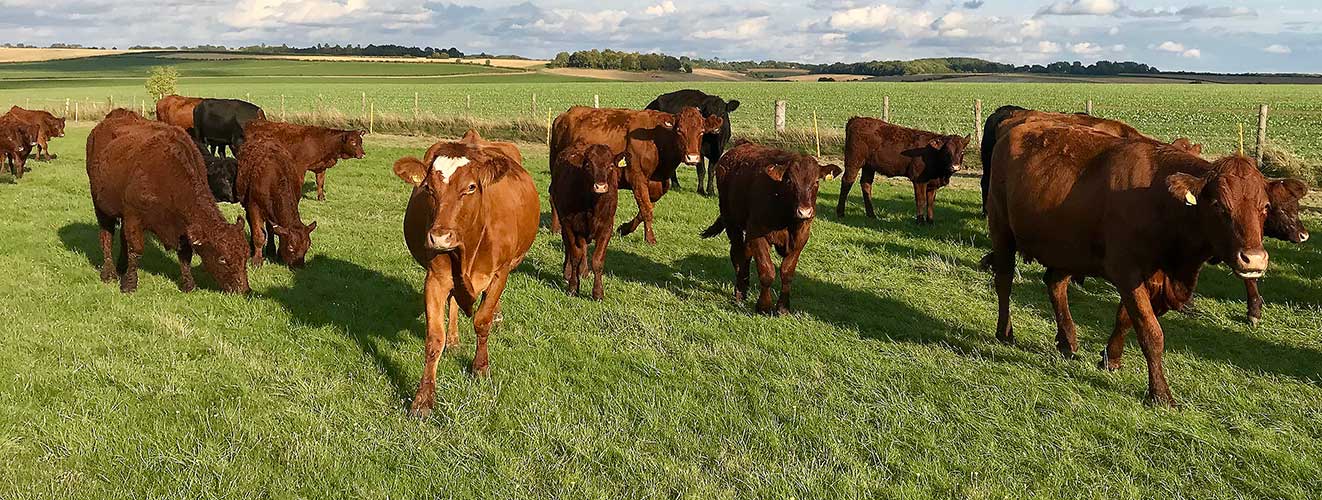
A 60-strong suckler herd has once again become part of our enterprises here at Law Farming.
With large areas of low-quality grass entered in Countryside Stewardship Schemes, we selected the Salers breed of cattle for their hardy nature and ability to survive on poor forage with little supplement feeding. Salers originate from the Auvergne region of France. They have a thick mahogany red or black coat. Originally bred for work as well as meat and milk production, this was considered a dual-purpose cow, although now better known for its fertility, ease of calving, its maternal instincts and ability to provide large quantities of milk for their calves.
Calving in late Spring, store cattle ready for market, fed only on grass and stubble turnips are produced. This slower process of producing calves with a diverse diet of spices-rich grasses and fodder crops should provide for a high-quality and lean composition carcass.
Conservation
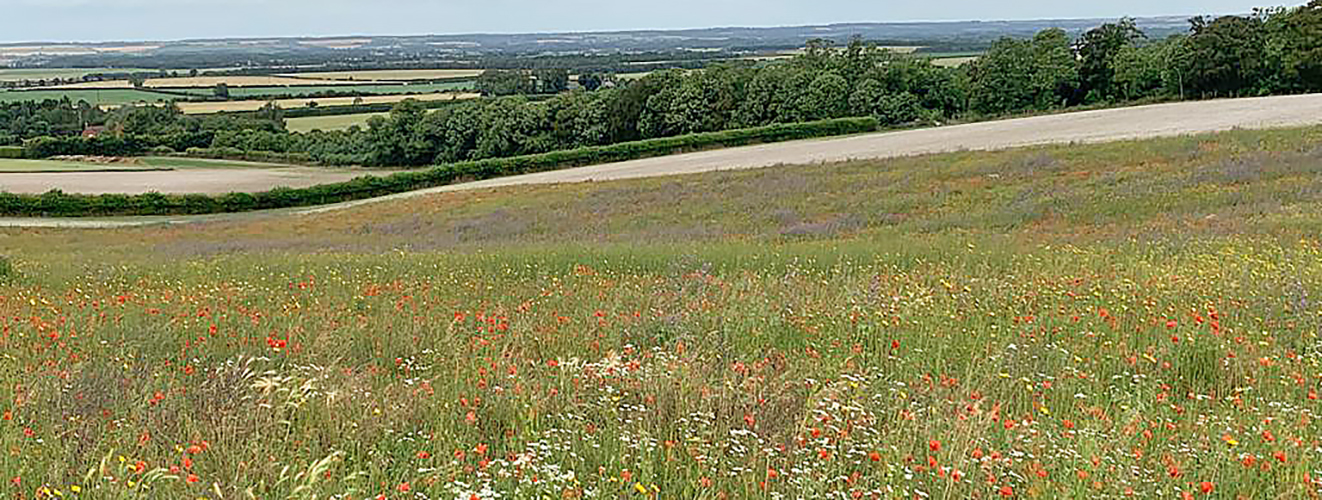
Conservation and habitat creation have been core policies at Law Farming for the past 40 years.
We have planted more than 30 km of hedges and allocated areas for wild bird food, wildflower and grass margins. Ponds and beetle banks have been created. We are sometimes left fallow and undersown spring cereals and stubbles overwintered for ground-nesting birds.
Parkland, hedges and ditches have been maintained, and archaeological features fenced off.
Therfield Heath
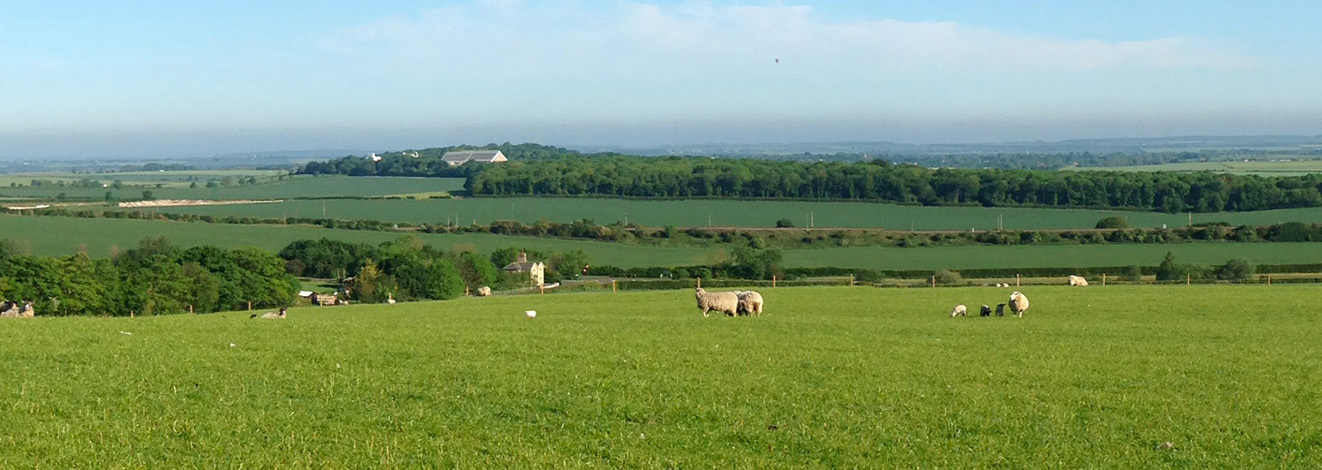
Therfield Heath (SSSI) is a fine example of undisturbed chalk grassland in East Anglia, which supports rare grasses and flowers, butterflies and insects. It adjoins Thrift Farm, and the farm benefits from grazing rights (stints) on the Heath.
The rare plants and insects are dependent on short grass, which is a result of regular sheep grazing. They would disappear if management by sheep were discontinued, and more undesirable species would take over.
Sadly, it has become more difficult for the sheep to graze safely on the Heath, owing to intermittent attacks by uncontrolled dogs.
Woodlands
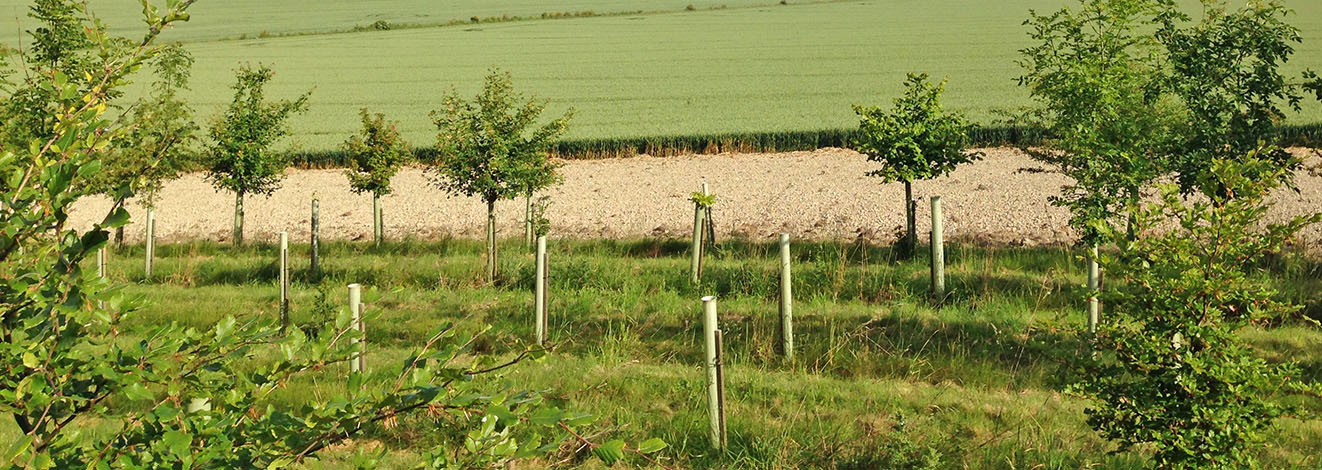
Since 2000, extensive work has been carried out to restore existing woodlands and to create new ones. Planting has taken place wherever there has been scope, i.e. in field corners and on marginal areas.
In early 2015, work began to restore Fordham’s Wood and Jubilee Wood. This started with the creation of permissive public access paths.
Throughout the year, Law Farming is delighted to host a wide variety of groups interested in our farms. The Black Barn is used as a base for activities, talks and refreshment.
We are a certified CEVAS (Countryside Education Visits Accreditation Scheme) farm. The farm environment is helpful in bringing aspects of the curriculum to life for students. Not only do children gain an insight into the link between the food they eat and their own health, but they also see how farmers and farming contribute to the maintenance of the landscape and the environment.
For more information about school farm visits, please email us or visit the Country Trust
The Black Barn, a former cart shed, can seat up to 45 people with doors opening onto an enclosed garden. It has kitchen and toilet facilities, as well as wifi. For more information, please email us.
CAMC members are welcome to Thrift Farm caravan and motorhome site. It is an easily accessible, dog-friendly, one-acre site which has far-reaching views over Cambridgeshire in one direction and into the wooded and undulating landscape of Hertfordshire in another. There is a network of public footpaths across the farm.
Thrift Farm is near Royston, and within easy access to the A1M and M11 motorways, is only a 30-minute drive from Cambridge, and there is a direct train line from Cambridge and London King’s Cross.
Email us at thriftfarmcl@lawfarming.com or call 07977 474124 to make a booking or for more information. Advance booking is preferred.
